All Stories
-

Yes, we can meet the climate change challenge
Editor in chief Nancy Shute discusses the first installment of our new climate change solutions series.
By Nancy Shute -
 Environment
EnvironmentRecycling rare earth elements is hard. Science is trying to make it easier
As demand grows, scientists are inventing new — and greener — ways to recycle rare earth elements.
By Erin Wayman -
 Environment
EnvironmentRare earth elements could be pulled from coal waste
The scheme would provide valuable rare earth metals and help clean up coal mining’s dirty legacy.
By Erin Wayman -
 Astronomy
AstronomyNew data show how quickly light pollution is obscuring the night sky
Tens of thousands of observations from citizen scientists spanning a decade show that the night sky is getting about 10 percent brighter every year.
-
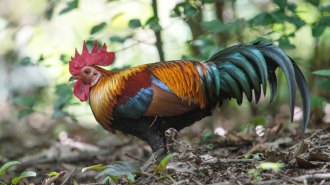 Animals
AnimalsChicken DNA is replacing the genetics of their ancestral jungle fowl
Up to half of modern jungle fowl genes have been inherited from domesticated chickens. That could threaten the wild birds’ long-term survival.
By Jake Buehler -
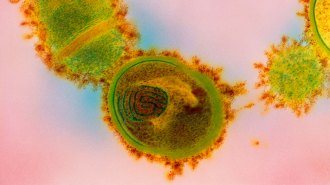 Health & Medicine
Health & MedicineToo much of this bacteria in the nose may worsen allergy symptoms
Hay fever sufferers have an overabundance of Streptococcus salivarius. The mucus-loving bacteria boost inflammation, causing an endlessly runny nose.
-
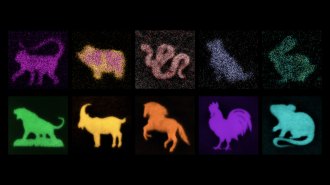 Materials Science
Materials ScienceWant a ‘Shrinky Dinks’ approach to nano-sized devices? Try hydrogels
Patterning hydrogels with a laser and then shrinking them down with chemicals offers a way to make nanoscopic structures out of many materials.
-
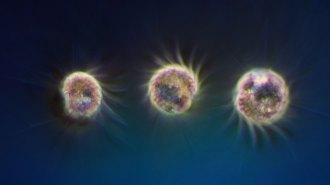 Microbes
MicrobesScientists have found the first known microbes that can eat only viruses
Lab experiments show that Halteria ciliates can chow down solely on viruses. Whether these “virovores” do the same in the wild is unclear.
-
 Animals
AnimalsThese adorable Australian spike-balls beat the heat with snot bubbles
An echidna’s snot bubbles coat the spiny critter’s nose with moisture, which then evaporates and draws heat from the sinus, cooling the blood.
By Elise Cutts -
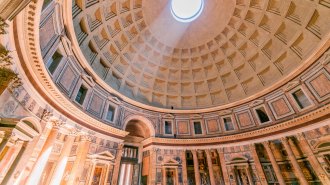 Chemistry
ChemistryThese chemists cracked the code to long-lasting Roman concrete
Roman concrete has stood the test of time, so scientists searched ruins to unlock the ancient recipe that could help architecture and climate change.
-
 Climate
ClimateCyclones in the Arctic are becoming more intense and frequent
Over the last 70 years, boreal storms have steadily grown stronger. And climate change may make them worse, threatening both people and sea ice.
By Nikk Ogasa -
 Physics
PhysicsA powerful laser can redirect lightning strikes
In a mountaintop experiment, a laser beamed into the sky created a virtual lightning rod that snagged several bolts before they hit the ground.